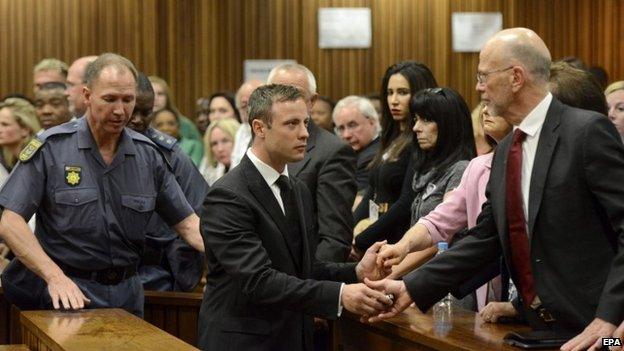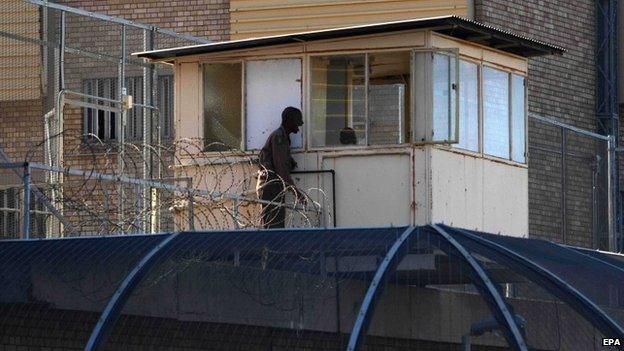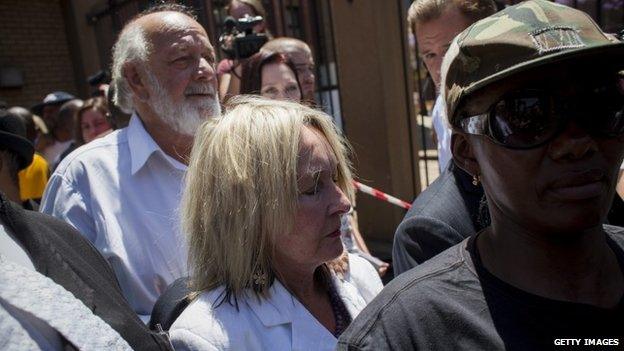Pistorius sentencing: Relief as justice is served
- Published

Pistorius gave his uncle his expensive wristwatch for safekeeping
Oscar Pistorius seemed to be expecting it.
As Judge Thokosile Masipa said the words "five years" in prison, the athlete's face remained immobile and unreadable.
Moments later, he turned to face his relatives behind him, who also showed no expression at the prison sentence their lawyers had fought so hard to avoid. Pistorius gave his uncle his expensive wristwatch for safekeeping, and headed down the stairs to the courthouse cells.
Judge Masipa had earlier spent some time explaining the reasoning behind her ruling to the court. It often felt as though she was addressing the nation, not just the quiet figure in a black suit perched in the dock.

Guards at Kgosi Mampuru Correctional Facility where Pistorius will be held
It was a suspenseful, roller-coaster ride, as the judge seemed to swing from a hefty prison sentence, to the possibility of community service for the athlete.
She breezily dismissed the defence's claims that prison would break Pistorius mentally or physically. But she also showed something close to contempt for the notion - nudged forwards earlier by the prosecution - that the vengeful demands of an "uninformed public" should be taken into account.
There was a difference, she stressed, between public opinion and public interest.
Marathon battle
There are many here in South Africa who believe a rich and famous man has somehow been allowed to get away with murder, and that a five year sentence - which will translate into just 10 months of actual prison time - makes a mockery of justice.

Reeva Steenkamp's parents Barry and June say justice has been done
But over time the majority will, I suspect, take heed of Reeva Steenkamp's parents, Barry and June, who seemed, above all, relieved that this marathon legal battle is finally over.
Minutes after the sentencing June Steenkamp told me she was satisfied with Judge Masipa's decision, and that the short prison sentence meant "he's going to pay something". I asked her if she thought that justice had been served. "Yes," she replied firmly.
The prosecution service must still decide if it wants to appeal against the verdict or the sentence. Plenty of legal experts think they have a good case to reinstate a murder verdict.
But this has been, in some ways, a humiliating defeat for Prosecutor Gerrie Nel, and given the Steenkamps' attitude towards another legal battle it is a moot point whether they would be wise to keep fighting or to cut their losses.